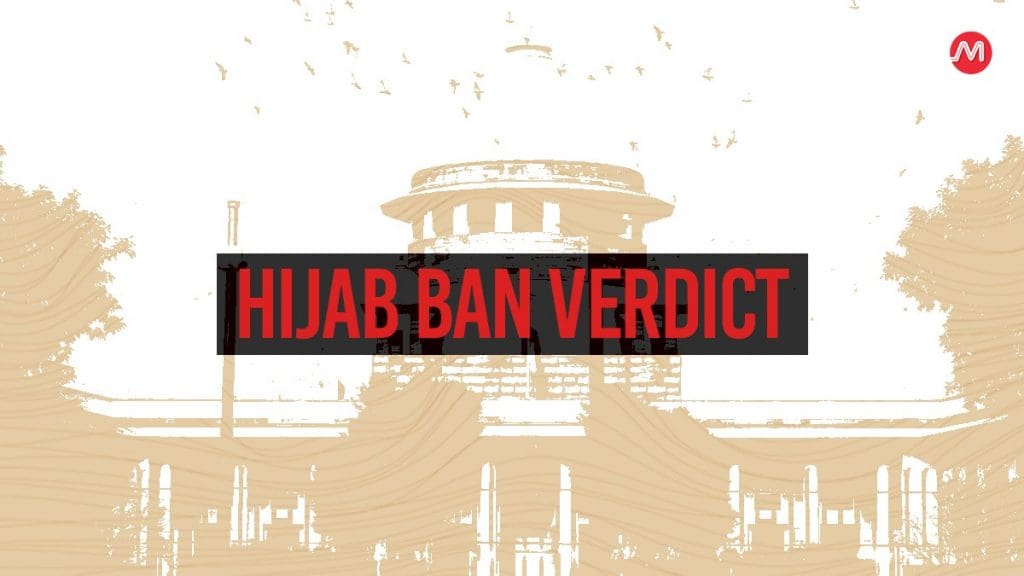
The Supreme Court Thursday delivered a split verdict on petitions challenging the March 15 Karnataka High Court verdict dismissing a batch of pleas filed by Muslim girls studying in pre-university colleges in Udupi seeking right to wear Hijab in classrooms.
Justice Hemant Gupta dismissed the 26 appeals filed against the judgment of the Karnataka High Court which held that hijab was not an essential practice of Islam and allowed the ban on wearing headscarf in educational institutions in the State.
Expressing the divergence in his opinion, Justice Sudhanshu Dhulia set aside the Karnataka High Court judgment and held that the entire concept of essential religious practice was not essential to the dispute.
“The High Court took a wrong path. It is ultimately a matter of choice and Article 14 and 19,” he said.
live Law
A two-judge bench of the Supreme Court, headed by Justice Hemant Gupta and also comprising Justice Sudhanshu Dhulia, on September 26, had reserved its order, after hearing from all the parties — 23 petitioners, their lawyers, Karnataka BJP government — for 10 days.
Karnataka’s Hindutva party led government had argued in the Supreme Court that it had the authority to issue an order to educational institutions to follow the discipline of wearing the prescribed school uniforms.
Senior advocate Dushyant Dave, appearing for the students/ petitioners, argued that fundamental rights, freedom to choose to what to wear and freedom of faith would not diminish inside a classroom.
The lawyers for students — Devadatt Kamat, Dr Rajeev Dhavan amd Dishyant Dave — submitted to the Apex Court that the Karnataka State government had not presented even a single shred of evidence to support their claim that a few students wearing Hijab to their classrooms in addition to their respective uniforms violated public order, health and morality.
Muslim students in Karnataka have been protesting the ban on hijab in educational institutions, saying the Islamophobic move of the Karnataka government violates their religious freedom guaranteed under India’s constitution.
Muslim students, activists, and Opposition leaders across the country allege that these attacks on Muslim symbols and practices are part of the larger Hindutva agenda of imposing majoritarian values on the country’s 200 million Muslims.
Soon after the verdict, Muslim students in Karnataka who have been fighting against the hijab ban, Muslim leaders, human rights defenders, and Opposition parties had said the verdict is enabling discrimination against Muslim students and it suspends the fundamental rights of hijab-wearing students.



